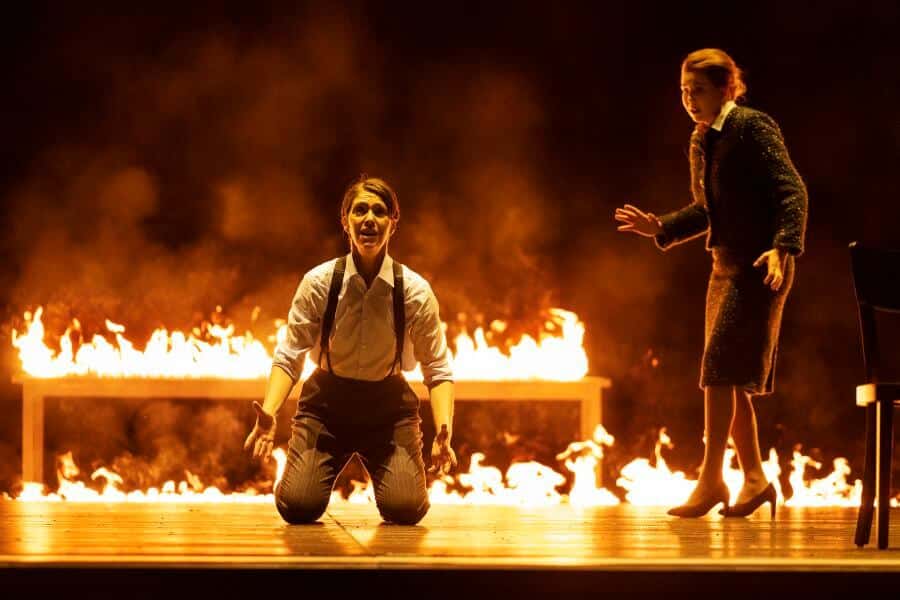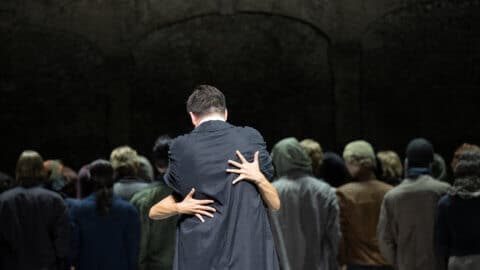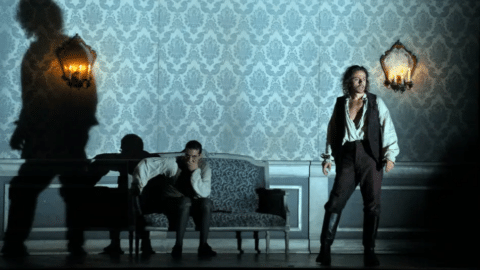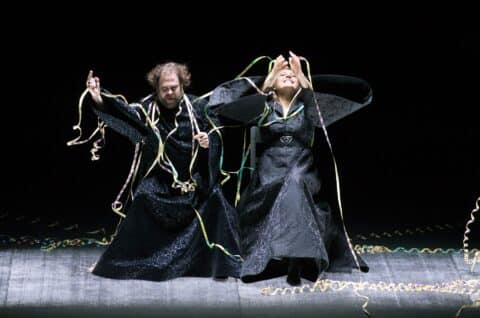TITUS • OPERAEN
★★★☆☆☆

Photo: Miklos Szabo
REVIEW LA CLEMENZA DE TITUS: MOZART MINUS THE MAGIC
Tight storytelling, cool set design and great vocal performances fail to distract from the lack of magic in Mozart’s last composed and rarely performed opera Titus.
It must have really been the end of the month when Mozart agreed to compose Titus as part of the coronation festivities for King Leopold II, Emperor of Austria and King of Bohemia from 1791, which was also the last year of Mozart’s life.
Mozart’s rival Salieri had turned down the prestigious commission due to time constraints, but Mozart, as always, was short of money and took the job. There may have been a little too much on his plate, as we would say today.
The opera’s plot is a disturbing and in many places involuntarily comic celebration of imperial empathy and gentleness, which unfolds at the end of a treacherous assassination attempt initiated by jealousy and love.
The residence of power is set on fire, but the emperor survives and ends up forgiving the wrongdoers.
The opera is a so-called opera seria and a commissioned work that today would be called operawashing – royal/ imperial propaganda disguised as entertainment, a musical advertorial or just clever branded content.
The original plot unfolds in ancient Rome, but of course the point about imperial moral superiority is meant to rub off on the 1791 situation and boost Leopold II’s coronation and popularity.
Musically, there are only momentary hints of the Mozart magic we know from, for example, The Magic Flute and the fabulous Requiem composed in the same year.
Several excellent arias allow Elisabeth Jansson and Mojca Erdmann in particular to showcase their vocal talent, while fine, dramatic choral pieces allow the opera choir to demonstrate their high level.
In general, however, the music seems to lack the inventiveness and clarity that characterizes so many other works by the master. We get a brief touch of genius when a well-intentioned, lovesick clarinet flirts so shamelessly with one of the women that she goes weak in the knees and has to surrender to love. Naughty, Amadeus.
Intellectually, Titus is an interesting experience due to its rarity, but to be honest, the relatively short opera (2x 55 min) leaves you feeling a bit flat.
Jetske Mijnssen has staged the production with a skillful focus on the psychology of the characters. Ben Baur is responsible for set and costume design in cool gray, marble, powersuits and beautiful typography, topped off by a beautiful key scene with a full blast of pyrotechnics.
Titus is produced in collaboration with Staatsoper Hamburg, among others. It’s good stage craftsmanship, but Titus just doesn’t have it in it, and we end up with three stars from Got To See This.




